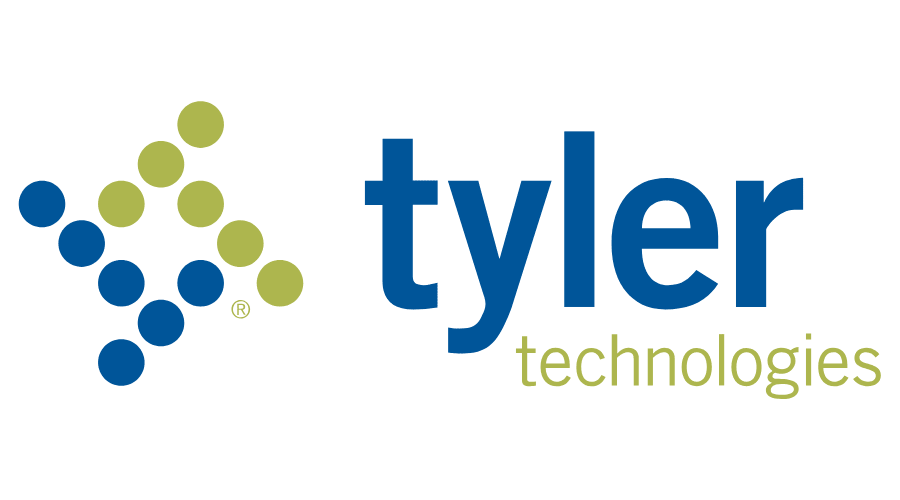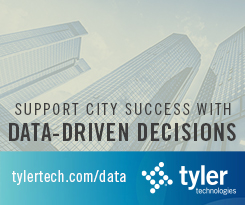
Photo: Rex Wholster | Dreamstime.com
When it comes to city data, context is everything
07 July 2022
Sponsored by: Tyler Technologies
It has become ubiquitous to talk about the importance of data-driven decisions in city government, but data alone will not solve today’s complex urban challenges.

“Data is ones and zeros, but behind it are complex human lives – when we look at data in context, we can really get the insights we need to drive change that will benefit our residents,” said Justin Bruce, Director of Client Success at Tyler Technologies.
Fulton County in Georgia offers a powerful example of this for cities and counties.
The county was looking for ways to reduce repeat arrests and address rates of mental illness among jail populations — approximately 20 percent of inmates in US jails are estimated to have a serious mental illness. Officials needed a better way to understand the factors impacting recidivism and people suffering mental and behavioural health issues.
This is crucial both to help individuals get their lives back on track and to address knock-on effects. The cost of jailing people with mental illness is high and the outcomes are poor. People with mental illness and addiction are found to have longer jail stays, higher recidivism rates, and more criminogenic risk factors.
Stepping Up
As part of its Stepping Up initiative to tackle these issues, the Fulton County Justice and Mental Health Task Force was convened. It is led by the Fulton County Superior Court and includes a broad coalition of community partners such as police departments and health representatives.
The idea is to integrate datasets from the parties to make information and contextual insights available to the relevant agencies. This approach sheds light on each aspect of the continuum of care.
It pulls in jail data from Fulton County Jail and Atlanta City Detention Center, behavioural health data from Grady Health Systems and both Fulton and Georgia Departments of Behavioral Health and Developmental Disabilities, as well as housing data from the Homeless Management Information System, among others. The platform provides each organisation with a custom data dashboard on a permissions basis.
“Sharing data across systems that do not traditionally share with each other gives agencies a much more holistic picture of individuals,” said Bruce.
Joined-up thinking
Analysts uncovered an important link between the top jail charges for repeat individuals. The majority of charges could be considered ‘quality of life offences,’ such as criminal trespassing, disorderly conduct or minor shoplifting. There was also an overlap of mental health issues and probabilities for co-occurring substance abuse and chronic homelessness.
The joined-up approach aims to better connect people to additional support and benefits and match them to the agencies that can best meet their needs – with the ultimate goal of helping them avoid returning to jail, as well as freeing up funds that can be reinvested in treatment and prevention.
“This important partnership gives us the ability to more quickly identify those in greatest need of behavioral health services,” said Robert McBurney, Chair of Fulton County’s Justice and Mental Health Task Force.
Building trust
The key to encouraging data-sharing to meet social and environmental goals is building trust, according to Bruce.
As well as the underlying platform, the Fulton County initiative required all the partners to enter into a legal data-sharing agreement.
“This was complex but goes to show that when common goals are clear, it is possible,” commented Bruce.
Privacy and governance are important considerations so choosing the right government-focused platform with the necessary controls to maintain security and work with source data is crucial.
Making it as easy as possible for participants to share their data also lowers barriers.
In Fulton County, teams can easily connect data from their existing systems via Tyler’s enterprise data platform without creating a lot of work for data-owners.
“The data-sharing work through Fulton’s Stepping Up initiative is both ambitious and inspiring. But cities can easily start with smaller-scale projects to gain confidence and demonstrate benefits,” said Bruce.
He says a good place to start is around supporting existing innovation programmes and city strategies. Gathering a few basic metrics and measures to show outcomes can help people start to better understand city trends.
As cities mature, they can expand the same approach internally and look at how they can use operational metrics to drive better outcomes. Trust is critical here, too.
Bruce said: “There’s a big misconception sometimes where people think data will be used against them so it’s important to be clear from the outset that the goal is to find and fix gaps, not judge them.”
He added: “You can’t manage what you don’t measure – establishing the right metrics and breaking data out of silos is a powerful way to empower the people who do the work to meet city goals every day.”












